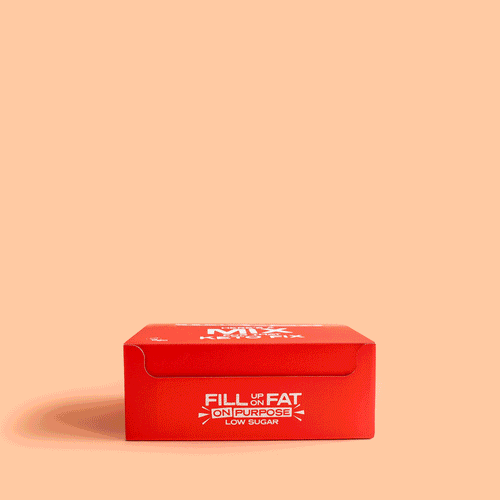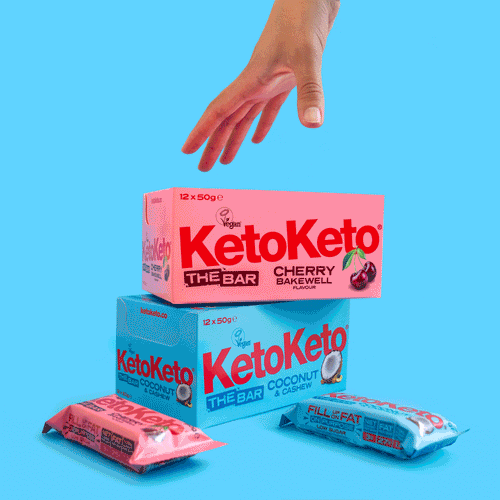According to the Cancer Research UK report of 2016-18, nearly 400,000 new cases are diagnosed each year in the UK. The most common cancers in the UK include breast, prostate, lung, and bowel cancers.
According to WHO, cancer is the 6th leading cause of death worldwide.
Undoubtedly, advanced medicine has discovered various medicinal and surgical strategies to suppress cancers growth and recurrence. Amongst the breakthroughs in anti-cancer strategies, the one that has recently grabbed substantial consideration in controlling the growth of various cancers is through dietary modification: including the keto diet.
Yes, you have heard right! The Keto diet, adjunct with anti-cancer treatment, has shown tremendous success in preventing various cancers. A nutrition led approach to preventing the onset of cancer long term maybe should be more recommended amongst medical professionals and we know that amongst nutritionists; this has been an outcry for some time.
As per recent research, 30-50% of cancers are preventable, which can be due to a poor diet, where having fewer fruits and vegetables and more refined carbs in the diet can cause several cancers. Additionally the impact of refined sugar has now shown to play a bigger part than we realised in bringing about cancer in otherwise healthy individuals.
So the advantage is the fact that the keto diet helps cut down carbs and reprogram the body to use ketones for fuel, which has shown to help fight or protect against cancers and other diseases.
What is a keto diet?
A keto diet is consuming more fats while cutting down carbs in the diet. The diet comprises mainly fats (60-70%), moderate protein (15-20%) and least carbs (5-10%).
Note:
Limited but good carbs can have cancer-preventive effects when on the keto diet. But one suffering from cancer can eat a more fat-based diet (90%) to fight better against it, says WebMD.
Using dietary modifications to treat diseases is not new. People from previous centuries practised dietary strategies to curb and cure different ailments.
A study published in Future Oncology found that the Keto diet is a more effective and easier to monitor diet strategy against various cancers than other diets such as calorie restriction and intermittent fasting. (2)
Deep dive to the mechanism:
Every healthy human cell has its powerhouse (mitochondria) that takes glucose and undergoes various chemical processes to produce energy (ATPs) to perform cellular functions. Similarly, cancerous cells derive energy from glucose to infect more cells and spread.
Interestingly, healthy human cells have the mechanisms to get fuel from burning fats into ketones as a substitute when glucose is unavailable. However, cancerous cells cannot derive energy from ketones because of their powerhouse( mitochondria) dysregulation.
Hence, the keto diet uses the low glucose approach by cutting out carbs and shifting the body to burn fats to ketones for energy and depriving cancer cells of glucose to starve them to death.
Secondly, the keto diet lowers insulin levels. Insulin is an anabolic hormone which means that it boosts the growth and development of cells and tissues by enhancing:
- Metabolic activity
- Cells uptake of glucose
- Glucose storage by muscles and liver
- Fat storage in fat storage tissue
Hence, all these effects favour the growth and spread of cancer. Perhaps, the keto diet works by keeping glucose levels down, which result in low insulin levels, inhibiting cancer cell growth.
How does the keto diet stop the recurrence of cancer?
The idea is cancer cells will only thrive if they have nutrition in the form of glucose. The Keto diet depletes glucose and resets the body to only use fats (ketones) as fuel so that cancer cells can't grow or recur on the ketone supply.
How does the keto diet help in cancer prevention?
Firstly, it helps with weight loss as obesity is linked to high chances of cancers, says Cancer Research UK. Secondly, the keto diet allows eating a few but good carbs. For instance, fibre-rich carbs are found beneficial to prevent bowel cancers. Similarly, fruits and vegetables are rich sources of antioxidants that help prevent various cancers.
Other benefits of Keto diet:
- It enhances the effectiveness of cancer treatment(chemotherapy)
- It improves the quality of life
- It enhances the lifespan
Keto diet suggestions for anti-cancer benefits:
- Fats: If one fighting cancer, he must take more fats (up to 90%) and a little to no carbs in the keto diet. For taking fats, avoid relying purely on long-chain triglycerides (Canola, olive oil). Instead, take medium-chain triglycerides (MCT) with long-chain triglycerides (LCT)to bring a potent anti-cancer effect. Perhaps, MCT absorbs quicker in the blood and is quickly uptake by cells to use as energy.
- Foods rich in MCT: Palm and coconut oils are the richest source of MCT, but you can get MCT fats from yoghurt, cheese, butter, and milk.
- Carbohydrate: Take few but good carbs, such as fibre-rich carbs from whole grains, fruits, and non-starchy vegetables.
- Proteins: Take a moderate amount of lean meat (chicken, fish, bacon), dairy or egg as an excellent source of protein.
Caution:
Red meat, which is on the list of keto-friendly foods, is shown to not be suitable for cancers patients, and in fact, it may enhance growth and worsen cancer (stomach and bowel cancer). Something to look out for and of course, we recommend not to take our word as set in stone, do contact your GP if you are considering making any changes to your diet.
A wise thought:
A Keto diet only works a miracle if one follows it sincerely. However, we often mistake during meals when the lower energy levels force us to nibble on easy carbs loaded snacks that can never let us reap the keto diet benefits.
KetoKeto snacks, which are tailored to your keto diet needs, help to keep you on track during meals and fuel your energy levels. They help easily track carb and sugar intake and allow you to also monitor the amount of fats you are consuming day to day.
Since keto products are 100% vegan, so there is no meat involvement. On the top, most of the ingredients in Keto Keto products, such as our bars, are packed with medium-chain triglycerides (coconut oil) and the least carbs. In short, all these healthy features make the Keto Keto snacks extraordinary to be used by anyone doing the keto diet for anti-cancer effect.

KetoKeto Bars
Our bars are made with carefully selected ingredients, such as almonds and coconut oils to ensure you get the right balance of healthy fats and protein for your digestion. Low in net carbs and developed to have minimal impact on blood sugar levels, over 10,000 people in the UK trust them as their go to keto snack.
What does medical research say about the keto diet?
A wealth of research has supported the positive effects of the keto diet on various cancers. For instance, the keto diet can help to relieve cachexia in cancer patients.
Cachexia is the most common feature of cancer that causes weight and muscle loss due to metabolism changes and since the whole body sets on a fight and flight mode.
Although the keto diet helps weight loss in healthy humans, studies have shown that the keto diet can help regulate and resynthesize muscle mass in cachexic patients with cancer.
Additionally, a study published in Nutrition and Metabolism revealed suppression of the most aggressive and fatal brain tumor (glioblastoma) when the patient followed a keto diet adjunct with anti-cancer treatment. (7)
Similarly, a study published in Oncotarget investigated the effects of the keto diet on a brain tumour in children(neuroblastoma) and discovered potent anti-cancer effects from medium-chain triglyceride (MCT) fat-rich content in the keto diet.
Moreover, inflammatory markers are the proteins that signal that something is wrong in the body, and persistently high inflammatory markers are the characteristic of cancers and immune-related diseases. A randomised control trial (the most authentic type of research) published in Lipids found that cancer patients showed fewer inflammation markers when put on a high-fat diet (1). Perhaps, the lower inflammatory markers in the cancer patient suggest that the body is healing and clearing out cancer.
Wise words of Caution:
- You should not use the keto diet as the sole cancer cure and never stop or delay standard cancer treatment while on the keto diet.
- Discuss with your doctor if you start a keto diet.
- Do not follow any diet for a prolonged time. Evaluate the diet caused benefits and risks after every three months.
References:
- pubmed.ncbi.nlm.nih.gov/18046594/
- futuremedicine.com
- www.frontiersin.org
- www.sciencedirect.com).
- pubmed.ncbi.nlm.nih.gov/14769489/
- www.who.int
- pubmed.ncbi.nlm.nih.gov/20412570/
- www.healthline.com
- ncbi.nlm.nih.gov/PMC5630289/
- www.webmd.com
- www.cancercouncil.com
- www.cancerresearchuk.org
- www.cancerresearchuk.org






